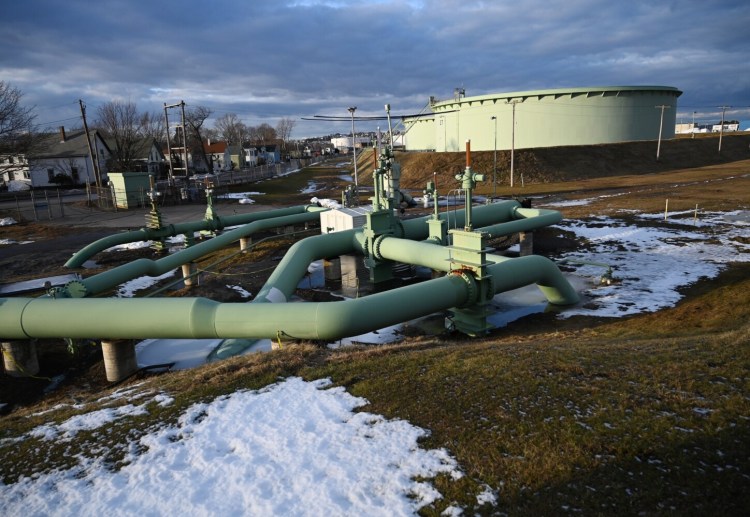Maine’s top court has decided that a South Portland ordinance blocking oil exports does not conflict with state law.
The ruling Thursday is a significant win for the city in a nearly 5-year-old court battle with the Portland Pipe Line Corp. over what is known as the Clear Skies Ordinance. But the case isn’t over. It will now return to a federal appeals court for a ruling on the constitutional questions raised in the lawsuit.
South Portland City Manager Scott Morelli said the city will “patiently await a final decision.”
“We are obviously very pleased with the Law Court’s decision, which affirms the right of municipalities to adopt ordinances protecting the health and safety of their residents under their home rule authority,” Morelli wrote in an email. “This is yet another affirmation of the City’s Clear Skies Ordinance.”
An attorney for the Portland Pipe Line Corp. did not respond to a voicemail Thursday. A voicemail to the company’s South Portland office was also not returned.
As of September, the lawsuit has cost the city $2.7 million and drawn nearly $174,000 in donations to its Clear Skies Legal Defense Fund.
The ordinance effectively prevents the company from reversing the flow of its pipeline from South Portland to Montreal to allow the company to transport crude oil from western Canada to shipping terminals in Portland Harbor, where it could be loaded onto tankers for export.
The South Portland City Council passed the ordinance in July 2014. It focuses on the potential threat to local air quality if the company were allowed to load crude oil into tankers. The local action also was fueled by a global effort to limit Canada’s production of tar sands crude, which environmentalists say accelerates climate change.
The pipeline company filed a federal lawsuit against the city in February 2015. The lawsuit contends that the ordinance is pre-empted by state and federal laws, violates the Commerce Clause of the Constitution, and adversely impacts national and international oil trade. The constitutional clause gives Congress the power to regulate interstate and foreign trade.
A federal judge upheld the ordinance in January. The company appealed. The 1st U.S. Circuit Court of Appeals in Boston then asked the Maine Supreme Judicial Court to determine whether the Clear Skies Ordinance violates the licensing authority of the Maine Department of Environmental Protection over petroleum facilities operating in coastal areas.
Under the state’s Coastal Conveyance Act, the Maine DEP issues licenses for petroleum companies operating where they pose a potential hazard to public and private recreation, fishing, lobstering and other marine life used for food and other commercial activities.
Lawyers for the pipeline company have argued that its operating license from the DEP is an “order” under state law that cannot be superseded by a municipal ordinance. Lawyers representing the city and the state have argued that the DEP license isn’t meant to pre-empt the city’s home-rule authority on zoning issues pertaining to the health and welfare of the municipality.
“We respectfully ask the Law Court to consider … whether interpreting ‘order’ to include MDEP licenses infringes upon ‘home rule’ authority reserved for the state’s municipalities,” the federal judges wrote in their order.
The state judges decided that the operating license is not an order, and the ordinance is not in conflict with Maine law.
“Maine’s Coastal Conveyance Act unambiguously declares that municipal ordinances concerning oil terminal facilities ‘are valid’ unless they directly conflict with the Act or rules or orders made pursuant to it,” Acting Chief Justice Andrew Mead wrote in the unanimous decision. “The Legislature made the presumption of a local ordinance’s validity particularly strong by explicitly invoking constitutional municipal home rule authority at the outset of the statute.”
Morelli said the 1st Circuit judges have not yet requested any additional briefs or arguments on the case. There is no deadline for them to issue another opinion.
Send questions/comments to the editors.




Comments are no longer available on this story